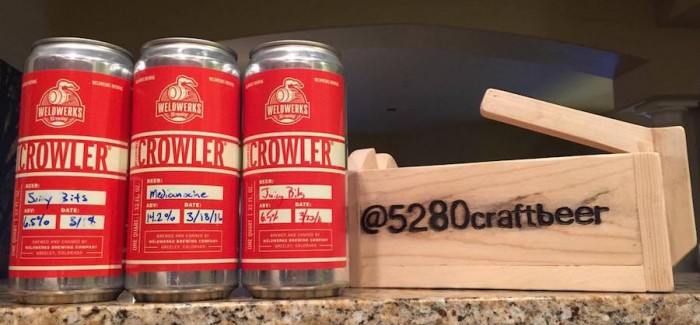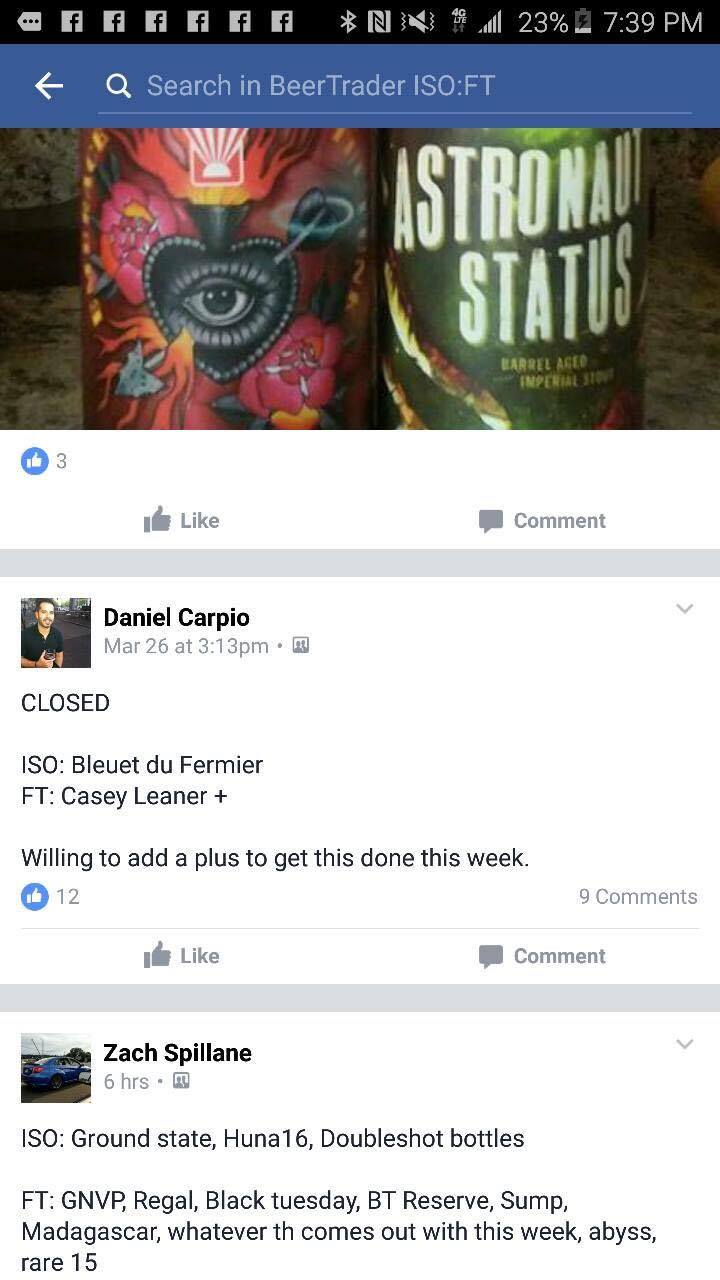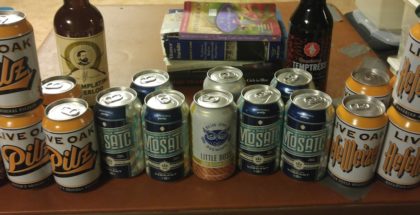Beer Trading 101 | The Ins and Outs of Beer Trading
So you’ve moved on from macro to craft, and maybe you’ve dabbled in attending some local small batch releases. You’ve also joined some local Facebook groups and started perusing beer forums on sites like Beer Advocate, but you’re noticing more and more that you don’t recognize the beers that are being posted, or breweries being discussed. Your curiosity is piqued, so you head to your favorite bottle shop and start scavenging the walk-in coolers in search of these cryptic hidden treasures, but to no avail, they aren’t there. You finally reach the tipping point in your frustration and fall to your knees crying to the beer gods “why oh why can’t I find any of these beers?” But then suddenly the clouds part and the answer is clear, it’s time to dive deep into the throes of Beer Trading.
Due in large part to the vast connectivity of the world we live in, beer trading has reached new heights and continues to serve as a great way to discover new breweries from out of state that are otherwise unobtainable. But if you’re just getting into the game, the world of craft beer trading can be a daunting task that produces many questions. How do I initiate a trade? Is there trading etiquette? How do I engage in the community? Is it legal? Well, I have compiled 11 tips to help ease your transition into this exciting segment of the Craft Beer universe, so pay close attention.
Beer Trading 101
Get accustomed to the language
The first time I saw someone conducting a trade, I was a bit lost. Let’s start with the basics: ISO, which means ‘In Search Of’, and FT, which means ‘For Trade’. Now, some things cannot be taught. There seems to be a tendency for every beer name to be abbreviated, so if you’re ever unsure what BAVBDL stands for, just ask, we tend to be a friendly community.
Start with an in-person (IP) trade first
Test the waters with trading locally. Maybe you just got back from California with a pretty decent beer haul and you know of a buddy or acquaintance that just obtained a bottle of Dark Lord. Strike up a conversation and see if they might be willing to part ways in exchange for something of equal value which is not obtainable locally. This can help to get your name out there, and is less stressful, as well as cheaper than immediately jumping into the world of shipping beer.
Catalogue your beer cellar
Programs like The Beer Exchange App, and CellarHQ allow you to inventory everything in your collection. I personally use The Beer Exchange App as it uses the Untappd database, which currently contains just about every variable or vintage of every beer in existence. It allows you to inventory via a simple interface on your phone, and you can also set beers as “for trade” so that a potential trader knows what you’re willing to part with.
Network via social media
Instagram, Facebook groups, Beer Advocate, Rate Beer, and Reddit have massive communities set aside specifically for beer trading. These are good sites to get a feel for local and non-local communities, as not every community follows a set standard of trading guidelines. Speaking of which, the guidelines are typically defined on a separate page, so pay attention to them closely.
Start small
It’s easy to set your sights on a Kentucky Brunch Brand Stout for your first trade, but some of the most rewarding and fun trades are when no specific beers are defined. Define a $50 spending limit, and find a trading buddy that’s looking to discover new breweries rather than hunting for whales (aka very limited and hard to obtain beers). Go to your local bottle shop, and put together a box of small, local breweries that don’t distribute out of state. Declare the dollar amount you spent to your trade buddy, and ship away! I promise you, the returns on an investment like this are very exciting.
Check the bad trader lists
Sites like talkbeer.com, beeradvocate.com, and reddit.com, have areas where traders can post about bad experiences with online and local traders. Protect yourself and make sure you don’t get scammed, because there’s no real way to get your money back once you part with your beer.
Do your research
Find local and hard to find options that someone out of state can’t obtain easily. Expand your own collection outside of your personal tastes (and for your sake don’t ever limit yourself to a single style of beer). A beer you may pass over regularly, may be another trader’s treasure, and might bring you closer to that extremely hard to find release that everyone has been buzzing about.
Ship carefully
Find a wine shipper, or any padded shipper. Many liquor stores are willing to part ways with some of these, but can also be found all over the web for a marginal fee. Otherwise, if you need to get something out of the door ASAP, use an abundance of bubble wrapping and foam padding. The box can never be packed too well. There’s nothing worse than shipping an entire box of valuable beer only to have the precious cargo not survive the journey.
Ship smart
This is where things get tricky, and where most traders are dissuaded from participating. Fear not! Follow these basic guidelines and you will do just fine. First and foremost: Plan on spending about 25% of the total value on shipping. Do not ship via USPS, as this is against the law. Most traders prefer FedEx as they seem to have lower prices, and handle packages with a bit more care, but UPS is always an option as well. Now, shipping without a liquor license is not the most legal of actions, but also something that’s not enforced or actionable outside of confiscating the package. If they ask what’s in the box, I usually tell them it’s vinegar or yeast samples, though I’ve known a few people locally who tell them it’s a box of snow globes. I’ve also known some individuals to throw in a few nuts and bolts so that when the box is shaken, it doesn’t sound like 500 ounces of liquid shifting about. Another thing to know: These items will NOT be insured. If shipping without insurance scares you, find a liquor store that will pack and ship it for you through their liquor courier license. It will be far more expensive (plan to tack on additional $40 for shipping), but the goods are guaranteed. Fedex and UPS also offer these services directly.
Most importantly, don’t be greedy
Beer Karma is a thing! Try not to obsess on the dollar for dollar amount, and include extras! Adding some solid extra bottles that a trader is not expecting is always a pleasant surprise and will definitely help to keep you at the top of their mind when they go to that new fancy bottle release. These extras can be as simple as a local beer that may not be rare, but a solid beer from a local brewery that doesn’t distribute outside the state.I like to also throw in brewery stickers, coasters, and glassware, or anything else that will put a smile on their faces. There is a certain level of personal satisfaction you get from delighting your trading buddy.
Give credit where it’s due.
If you have a good trading experience, make sure you let others know on beer trader outlets that “xXbeertrader5280milehighXx” is a class act, and “totally hooked you up with some whalez, bro.” This leads back to step number one. If you’re working towards acquiring that bottle of Madeira barrel aged Black Tuesday, it makes a huge difference to other traders when they know you’ll live up to your end of the deal.
Well ladies and gentlemen, there you have it. I hope that with these simple tips it will help you to ease better into the fun (and sometimes expensive) world or trading ales and lagers. You’ll find that if you take baby steps, and pay close attention, it’s a lot easier than it looks. Plus, you might make some great friends along the way. Most importantly though, remember that beer is fun, and that pathos should carry over to your new favorite hobby as well.







Submit a Comment